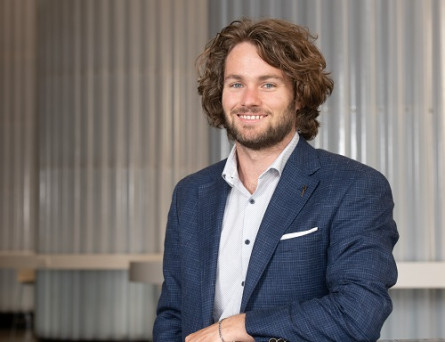Published Jun 9, 2020
Academic research is about producing knowledge and solutions for public benefit—and commercialisation is a pathway to getting those ideas out into the world where they can have the most impact.
But what makes a research discovery suitable for commercialisation? And who has the experience to make that call? For Victoria University of Wellington’s academics, it’s the Wellington UniVentures’ screening team who assess the commercial potential of any discoveries or ideas that arise from their research.
“Our job is to educate and inform researchers about what the potential markets are for the products or services that are likely to stem from their research,” says Dr Paul Geraghty, who leads the team of two analysts. “It’s easy to make assumptions about who their customers might be, so our work focuses on uncovering the facts—to ensure inventors gain a full picture of the available options. Then they can make fully-informed decisions about how they want to proceed commercially.”
Paul says that even if their early investigations prove the time isn’t right for a particular idea, they don’t say “no”—they say “not yet”—and suggest catching up at a later date to understand how the technology/research is progressing and if there are any new developments.
“Our goal is always to build strong, long-lasting relationships with the University’s researchers,” says Paul. “When you’ve got a solid foundation to work from, both sides are able to take on-board constructive feedback in a way that ultimately reinforces enthusiasm and creativity—and delivers a more robust product as a result.”
He says the earlier they can begin building those relationships, the more value Wellington UniVentures can add to researchers’ work.
“If they think they might be onto something—even after just one experiment—we want researchers to connect with us,” says Paul. “By having us screen an idea when it’s still an early-stage concept, we can protect any intellectual property that’s involved—which enables the researcher to talk about or publish his or her findings without compromising the ability to commercialise the discovery later on. We also might know someone they could partner with, or gain funding from, to accelerate the development of their research so it can achieve impact faster.”
However, Paul says it’s not just scientific discoveries that can benefit from the team’s expertise, as commercial potential can be found in many fields of research.
“We’re currently screening an evidence-based maths tuition programme that’s been developed from educational research, and working out who the potential customers might be—will it be the student, the school, the government or a third party education provider?”
So regardless of where the idea comes from, what are the common elements that the screening team look for when evaluating any idea’s commercial potential? Wellington UniVentures analyst Sam Wojcik explains:
“The first thing we look at is what makes the invention unique—i.e. what makes it different to anything else that’s currently on the market? We take a broad view of the space that the invention sits in, look at global trends etc—and then we do a deeper dive, to see what and who is already out there, and the type of pathways they’ve taken to market.”
Sam says that either he, or his fellow analyst Mick Riley, then write a detailed, non-biased report on their findings, which includes recommendations on suggested next steps towards commercialisation.
“After gathering the information, we then think critically about what it all means,” says Mick. “It’s the interpretation of the data that adds the real value for researchers.”
The report is then presented to the wider Wellington UniVentures Intellectual Property Commercialisation team for their feedback, to ensure all angles and options have been considered. Next, the relevant Commercialisation Manager discusses the report with the researcher to find out how they’d like to proceed.
“The screening team’s report acts as an initial talking point to begin the commercialisation journey, but ourend-goal is always to ensure that any direction we recommend aligns with the inventor’s expectations,” says Paul. “If the inventor wants to create a spin-out company rather than licence their technology, then that’s what we factor in to our next steps for the project.”
He says that the screening team’s expertise is available to Victoria University of Wellington researchers as a free service. “Having us here means we reduce the chance that researchers will miss out on a commercial opportunity. Commercialisation doesn’t happen without work, but there’s so much benefit to be gained—from work, personal and commercial perspectives.”
For more information about the screening team and its services, please contact Dr Paul Geraghty:

